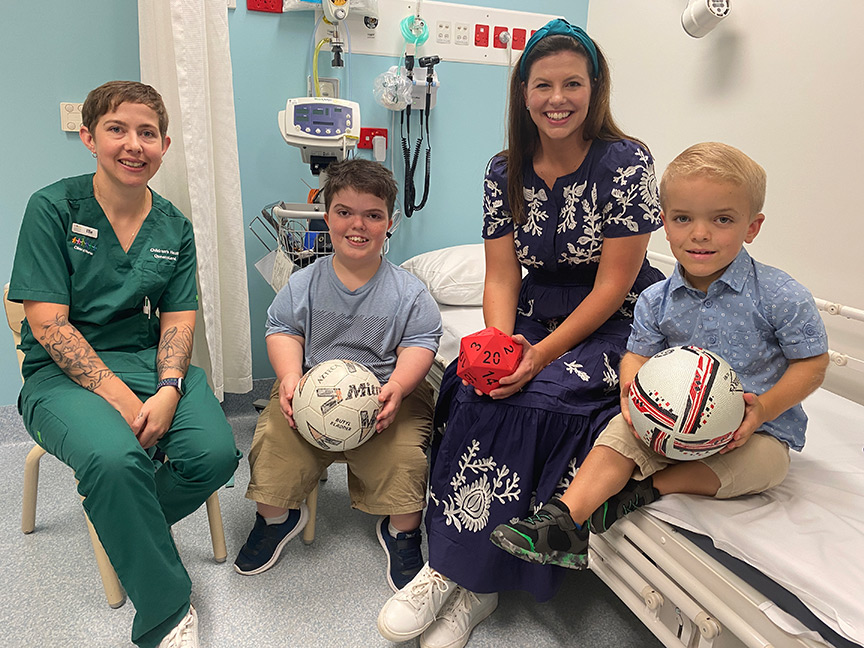
A multidisciplinary team at the Queensland Children’s Hospital is leading the way in the treatment of achondroplasia in Australia and internationally, supporting patients and their families to access the life-changing medication vosoritide.
The weekly endocrinology-achondroplasia clinic teaches patients and families how to administer vosoritide injections, a new medication which promotes bone growth, and therefore increase height, in children living with achondroplasia.
The clinic’s team of endocrinologists, nurses and physiotherapists, empowers patients and families with the information, training and support they need to administer the daily injections at home.
Vosoritide can help children with achondroplasia grow an extra 1.5cm each year, and potentially an extra 15-20cms across their lifetime.
The height difference enables people living with achondroplasia to be more independent as adults and access services many people take for granted.
Thirteen-year-old Jacob Puchala was among the first patients to start vosoritide treatmentat the Queensland Children’s Hospital and now administers his own daily injections.
“I would say you should probably try it out and if it’s not for you, it’s not for you, but even though there’s a little pain [from the injections] there’s a better outcome,” he said.
Queensland Children’s Hospital endocrinologist Professor Craig Munns said the Australian-first clinic provided patients and their families with a holistic ‘wrap-around’ service to support them through the vosoritide treatment journey.
“What we’ve seen in the children we’ve been helping and their families is that we’re being able to help them holistically,” Professor Munns said.

We’ve been able to help them feel more confident in themselves, able to help their function, help them go to school, to get around.
Health professionals across Australia and worldwide are looking to what the Queensland Children’s Hospital is doing to develop models of care and best practice treatment standards for this new life-changing treatment.”
Carly Morgan said thanks to the clinic, her 8-year-old son Ashton understood what vosoritide does, and how it’s helping him grow.
“A lot of people don’t realise what it’s like to live with a little person or be a little person and the daily little things that pop up.
This is giving Ashton more functionality,”she said.
“They’ve [the clinicians] showed us step by step everything, so Ashton was very hands on he got to hold and have a look at what we were potentially going to be injecting into him and they help us with needle fear, because that was something we really struggled with, especially at the beginning.”
Eight Queensland children and young people had started vosoritide treatment in the first five months, since the Queensland Children’s Hospital clinic opened in July 2023. A further 5 are due to start treatment shortly.
Professor Munns said children should be given the opportunity to start vosoritide treatment as early as recommended to achieve maximum benefits.
“Vosoritide works directly on the growth points of the bones to promote new bone growth in children and young people whose bones are still growing, so it’s important that Queensland families access this treatment as soon as possible for their children.”
Referrals to the Endocrinology Achondroplasia Clinic can be made by a GP, paediatrician or other medical professional. For more information, families can contact QCH-ENDO@health.qld.gov.au or call 07 3068 5264.
Children’s Health Queensland Health Service Chief Executive Frank Tracey said: “The Queensland Children’s Hospital strives to be at the forefront of research, innovation and new treatment options to provide the best possible care and improve health outcomes for all children and young people.
The holistic and multidisciplinary approach of the endocrinology-achondroplasia clinic is another example of our ongoing commitment to providing Queensland families with world-class, person-centred care.”